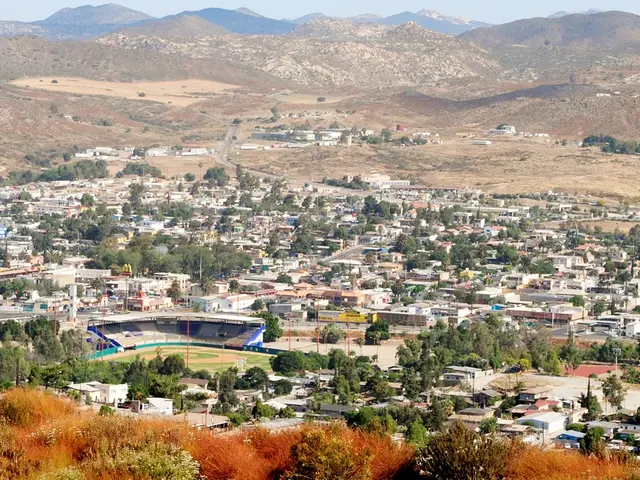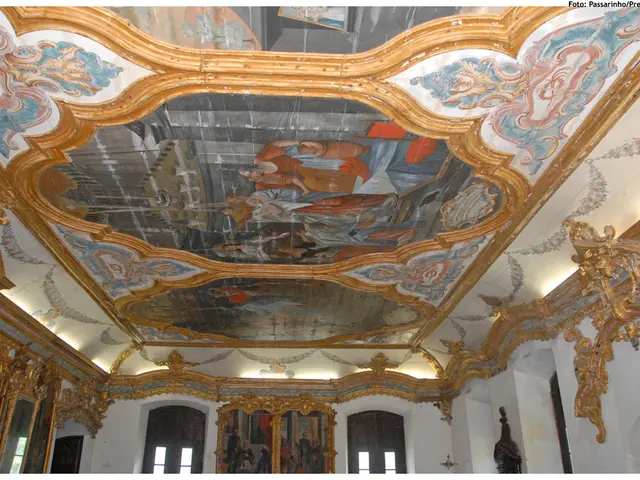Caregivers Abandoning Post Due to Housing Shortage in the Balearic Islands
Unraveling the XXX-plosion in the Balearics: Golden Goose or Destroyer of Paradise?
The Balearic Islands, Spain’s second-most frequented destination behind Catalonia, welcomed a record 18.7 million tourists in 2024—a 5% hike from the year prior—despite a population of just 1.2 million. This Gold Rush has its shiny side, contributing to over 40% of the islands' GDP. Yet, beneath the glitter lies a sinister underbelly. The burgeoning tourist industry has been pushing locals out of their homes, threatening public services, and eroding the very essence of the Balearics.
Tourist(s) versus Towns
The destructive impact of overcrowding and resource strain has been palpable, particularly at popular tourist hotspots. Social media and influencer marketing have unleashed a torrent of tourists, stretching local infrastructure to its breaking point. For instance, a spellbinding cove on Mallorca, designed for around 100 vacationers daily, witnessed over 4,000 daily visitors, creating a chaos virtually impossible to manage.
The environmental degradation is no better, with kaleidoscopic litter, battered coastal ecosystems, and destroyed footpaths now characterizing the islands. These issues compromise the beauty tourists long to behold and their desire for a Bollywood-esque vacation experience[3][4].
The influx of people has also brought traffic calamities, gridlock, and safety predicaments. Approximately 1,200 vehicles descend daily on certain sites, overwhelming local law enforcement, emergency services, and municipal organization[2][4].
Crushing the Dream: Housing Crisis
The exponential growth of tourism has disrupted the housing market, with housing prices skyrocketing uncontrollably. The shortage of public housing construction, lagging far behind European averages, intensifies this crisis[1].
A vicious cycle ensues: local residents, unable to afford their homes, desert their neighborhoods in droves, giving way to short-term tourist rentals and the conversion of residential properties into vacation havens. This real estate crucifixion endangers the social order and the sustainability of Balearic communities[1].
A Gilded-Cage Economy
While the tourist industry generates wealth, it also exposes the islands to the scourge of overtourism: environmental degradation and social disorder. Entirely dependent on tourism, local economies are susceptible to the detrimental consequences, including the pillage of natural and cultural heritage[1].
To counter the destructive force of overtourism, authorities have proposed shifts in tourist policy. The aim is to manage visitor numbers, preserve the islands' heritage, and foster sustainable tourism practices. Solutions range from discouraging influencer marketing at select sites to promoting less crowded, less-traversed regions. However, the success of these measures remains questionable[2][4].
- The burgeoning Balearic tourist industry, contributing significantly to the Islands' GDP, has also sparked a housing crisis due to soaring housing prices.
- The exponential growth of tourism, coupled with a shortage of public housing construction, creates a vicious cycle that forces local residents to sell their homes, leading to a high demand for short-term tourist rentals and the conversion of residential properties into vacation units.
- Local economies in the Balearic Islands, though boosted by tourism, are susceptible to the negative impacts of overtourism, including environmental degradation and social disorder, as they are entirely dependent on the industry.
- In an attempt to manage the destructive impacts of overtourism, authorities are exploring shifts in tourist policy, aiming to preserve the Islands' heritage, control visitor numbers, and promote sustainable tourism practices, though the success of these measures remains uncertain.








